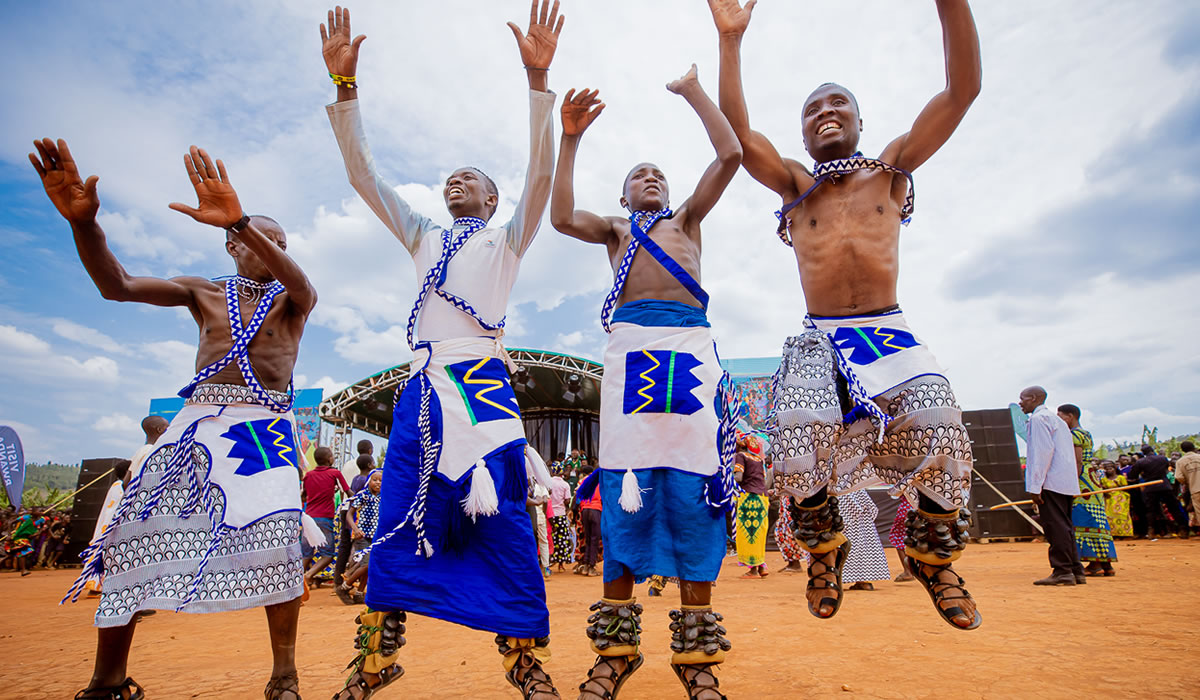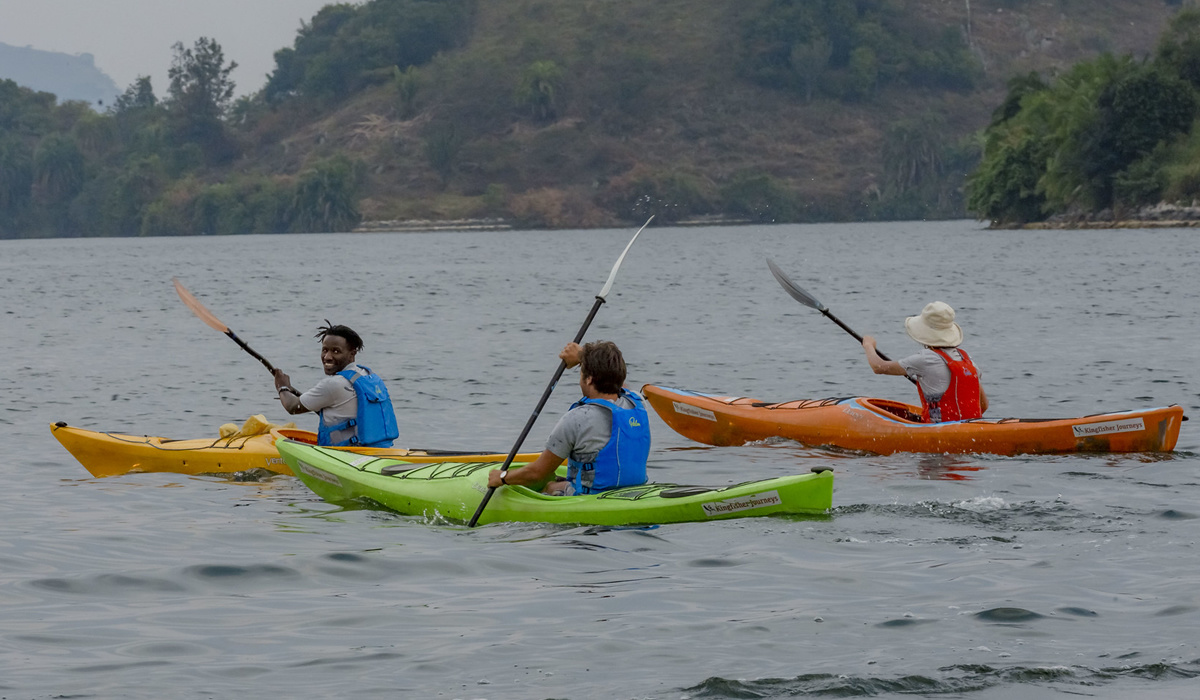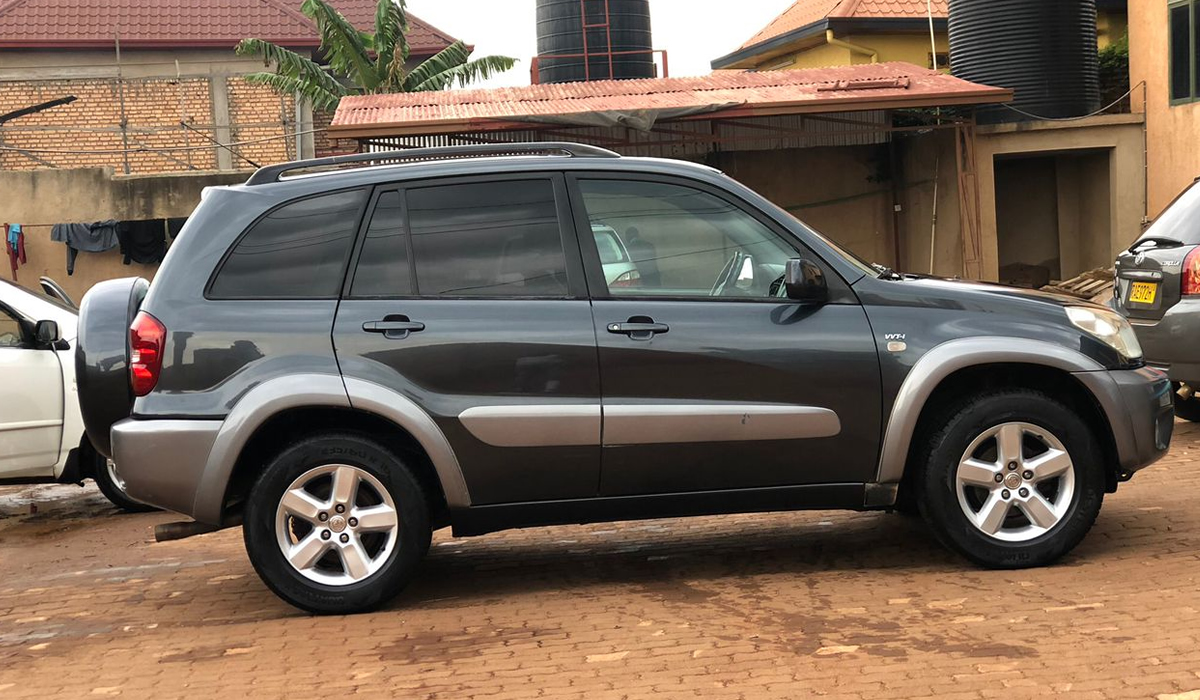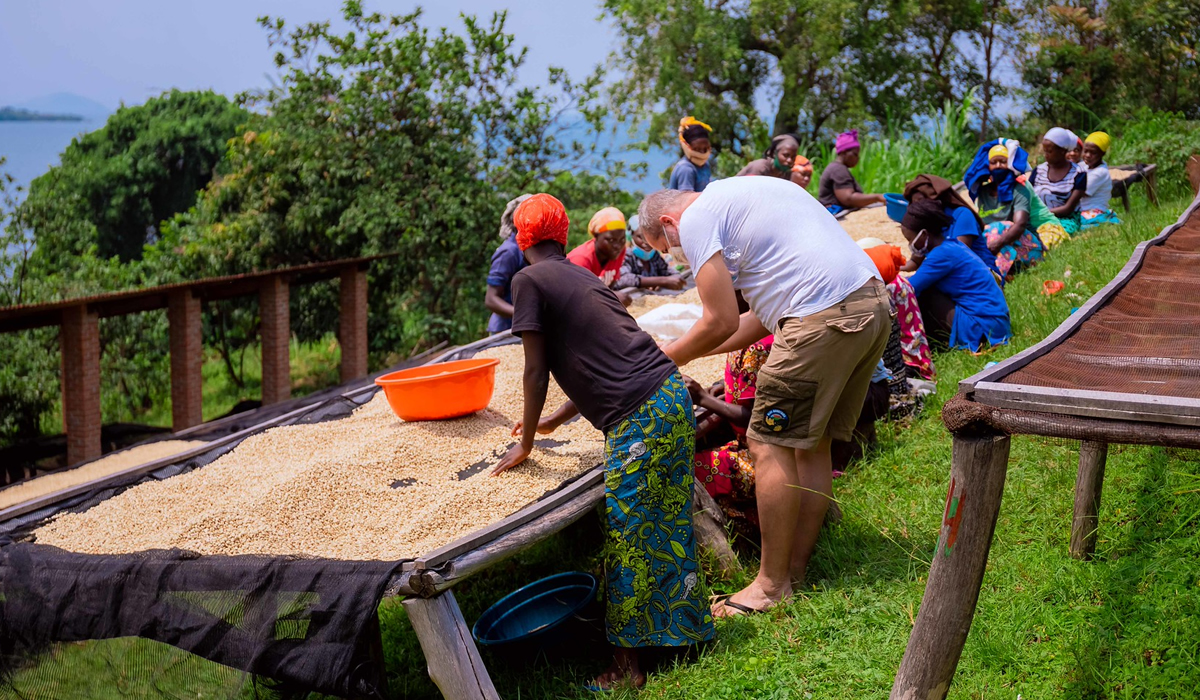Rwanda has steadily positioned itself as one of Africa’s most exciting destinations for immersive, nature…

Cultural Experiences You Shouldn’t Miss in Rwanda
Rwanda is known for its breathtaking landscapes, incredible biodiversity, and famously clean cities. While many travellers are drawn to the country by the allure of gorilla trekking in Volcanoes National Park, Rwanda’s rich cultural heritage offers just as much depth and wonder. From ancient traditions and artistic expression to community-based tourism and vibrant modern festivals, Rwanda offers a wide range of immersive cultural experiences that allow visitors to connect with its people, history, and way of life. Whether you’re a first-time visitor or a returning traveller, here are the top cultural experiences you shouldn’t miss in Rwanda.
Visit the Iby’Iwacu Cultural Village
One of the most popular cultural attractions in Rwanda is the Iby’Iwacu Cultural Village, located just outside Volcanoes National Park in Musanze. This community-based tourism initiative was created to provide former poachers and local communities with alternative sources of income through cultural performances and guided experiences. Here, visitors can witness traditional Rwandan life firsthand.
You can take part in traditional dances, listen to drumming performances, visit replica king’s palaces, and even learn how to prepare local meals using traditional cooking methods. The community members are proud to share their heritage, offering insight into customs that have been passed down for generations. This experience not only supports sustainable tourism but also gives you a deeper appreciation for Rwanda’s resilience and cultural pride.
Explore the Kigali Genocide Memorial
While not a traditional cultural experience in the sense of music and dance, the Kigali Genocide Memorial is a vital place to understand Rwanda’s history and the journey the country has taken since the 1994 genocide. Located in the capital city, this moving and thoughtfully designed memorial pays tribute to the more than 800,000 victims who lost their lives in just 100 days.
The memorial features exhibitions, personal testimonies, historical documents, and a peaceful garden where you can reflect on the country’s past. Understanding this chapter of Rwanda’s history is crucial to fully appreciating the strength and unity of its people today. The memorial stands as a symbol of reconciliation, peacebuilding, and hope, making it a must-visit for any culturally curious traveler.
Attend a Traditional Intore Dance Performance
Music and dance are integral to Rwandan culture, with the Intore dance being one of the most iconic and captivating traditional performances. Intore, which means “The Chosen Ones,” is a warrior dance that originated in the royal courts of Rwanda. Dancers wear elaborate attire including straw wigs, colorful sashes, and spears or sticks as they perform rhythmic steps and energetic leaps to the beat of traditional drums.
You can witness Intore dance performances at many cultural centers, lodges, and festivals throughout the country. The Rwanda Cultural Heritage Academy and Iby’Iwacu Cultural Village regularly host performances. Watching the Intore dance is not just entertainment, it is a vivid expression of Rwandan identity, pride, and unity.
Discover Local Crafts and Visit Artisan Cooperatives
Handicrafts are an important part of Rwanda’s cultural and economic life. From intricately woven Agaseke baskets to hand-carved wooden sculptures and colorful textiles, Rwandan artisans produce a wide range of beautiful items rooted in tradition. Visiting artisan cooperatives provides a unique opportunity to support local communities while learning about their creative processes.
In Kigali, the Caplaki Craft Village is a great place to shop for souvenirs and interact with local artists. For a more hands-on experience, visit the Nyamirambo Women’s Center, which offers guided tours and workshops where visitors can learn how to weave baskets, sew traditional garments, or cook Rwandan dishes. These centers are more than shopping spots—they are platforms for empowerment, especially for women, and a way to preserve cultural heritage through skill-sharing.
Take a Cultural Tour in Nyamirambo
Located in one of Kigali’s oldest and most vibrant neighborhoods, Nyamirambo is a melting pot of cultures, religions, and traditions. The Nyamirambo Women’s Center offers guided walking tours that allow visitors to experience local life from a grassroots perspective. During the tour, you can visit local homes, tailors, salons, and food vendors while engaging with the community in a relaxed and authentic way.
You’ll learn about the role of Islam in the neighborhood, taste local dishes like ugali and ibihaza, and even learn a few Kinyarwanda words. The tours are guided by local women, making it a rewarding experience that blends cultural immersion with community development.
Participate in Umuganda
If you happen to be in Rwanda on the last Saturday of the month, you might get the unique opportunity to take part in Umuganda, the national community service day. On this day, Rwandans across the country come together to clean streets, repair roads, plant trees, or work on community projects.
Tourists are welcome to observe or even join in with local residents. Participating in Umuganda is a powerful way to connect with Rwandans and witness firsthand the spirit of unity and responsibility that characterizes the country. It’s a distinctly Rwandan practice that showcases how cultural values are deeply embedded in everyday life.
Explore Traditional Cuisine
Food is a core part of culture, and in Rwanda, traditional Rwandan cuisine offers a delicious window into the local way of life. Dishes are typically simple, healthy, and made from locally sourced ingredients. Common staples include matoke (steamed green bananas), ugali (a stiff maize porridge), Isombe (cassava leaves with peanut sauce), and Ibihaza (boiled pumpkin with beans).
Many hotels and lodges serve Rwandan dishes, but for an authentic experience, try eating at a local restaurant or participate in a cooking class. In Kigali, the Nyamirambo Women’s Center offers a cooking workshop where you can learn to prepare traditional meals using fresh, local ingredients. This hands-on experience is a great way to deepen your appreciation for the flavors and food culture of Rwanda.
Visit the King’s Palace Museum in Nyanza
For a historical perspective on Rwandan monarchy and traditions, head to the King’s Palace Museum in Nyanza, located in the southern province. This cultural heritage site features a reconstruction of a traditional Rwandan royal palace, complete with a thatched roof and traditional furnishings. The site also has a modern museum that showcases royal regalia, historical artifacts, and information about Rwanda’s pre-colonial and colonial periods.
Visitors can also meet the royal Inyambo cattle, which are long-horned and known for their graceful appearance and ceremonial importance. The handlers demonstrate how these cows are traditionally cared for, including singing songs to calm them. This museum offers a fascinating glimpse into Rwanda’s regal past and the customs that shaped its society.
Experience Rwanda’s Modern Cultural Scene
While traditional culture remains strong, Rwanda also has a vibrant and evolving contemporary cultural scene. Kigali is home to a growing community of artists, musicians, designers, and filmmakers who are redefining what it means to be Rwandan in the 21st century.
The Kigali Arts Center, Inema Arts Center, and Niyo Art Gallery are excellent places to explore modern Rwandan art. These spaces host exhibitions, workshops, and live performances, often blending traditional motifs with modern themes. Kigali also hosts annual events like the Ubumuntu Arts Festival, which celebrates humanity and storytelling through dance, theater, and music from across Africa and the world.
Engaging with Rwanda’s modern creatives gives travellers a more complete picture of the country, not just as a place of history and tradition, but as a nation looking confidently toward the future.
Rwanda’s cultural richness is a profound part of what makes the country such a rewarding travel destination. Beyond its natural beauty and wildlife, Rwanda’s cultural experiences allow travellers to connect with the people, traditions, and modern evolution of the country. Whether it’s watching a warrior dance, cooking a traditional meal, walking through Kigali’s historic neighbourhoods, or supporting women-led artisan groups, these experiences leave a lasting impression that goes far beyond sightseeing.
For travellers seeking meaningful and immersive tourism, Rwanda offers a blend of ancient heritage and modern innovation. As the country continues to grow and evolve, it remains deeply rooted in its values of unity, resilience, and pride. To truly understand Rwanda is to engage with its culture, and these unforgettable experiences offer the perfect way to do just that.



